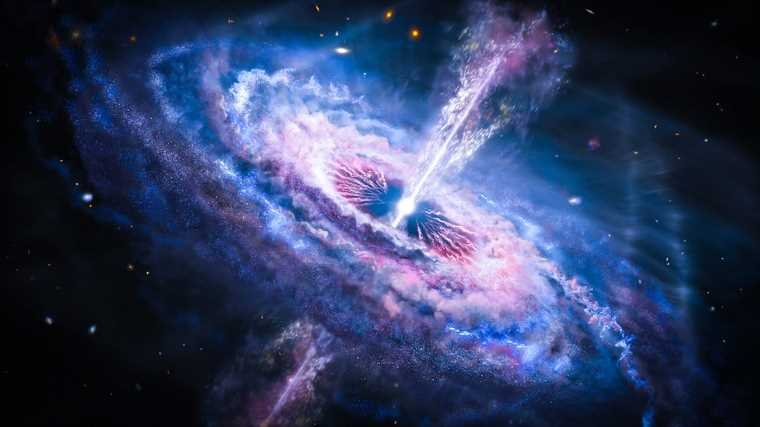New research confirms that the passage of time moved five times slower after the Big Bang than it does now due to a phenomenon known as “Time Dilation.”
A century ago, famed Theorist Albert Einstein predicted that time would have indeed moved slower the closer one moves back toward the Big Bang. But the latest discovery by a pair of Australian researchers using quasars as “clocks” is the first to prove definitively Einstein was right.
“Looking back to a time when the universe was just over a billion years old, we see time appearing to flow five times slower,” said study lead author, Professor Geraint Lewis from the School of Physics and Sydney Institute for Astronomy at the University of Sydney in a press release announcing the new discovery.
Einstein’s Theory Was Unprovable Until Recent Advances in Astronomy
When laying out his theory of General Relativity, Albert Einstein made a startling and controversial pronouncement. Due to a phenomenon, he called “time dilation,” time itself should have moved as much as five times slower than it does now in the millennia after the Big Bang.
Previously, astronomers were able to witness the telltale signs of this time dilation about halfway back to the Big Bang, or about 7 billion years after the birth of the universe, using the light emitted by supernovae. But until recently, that was as far as they could look “back in time.”
“Where supernovae act like a single flash of light, making them easier to study, quasars are more complex, like an ongoing firework display,” said Lewis.
Alongside Australian astro-statistician Brendon Brewer, Lewis was finally able to examine whether or not time did indeed move slower in the distant past and if this period of extreme time dilation lasted for as much as a billion years or more after the Big Bang.
“What we have done is unravel this firework display, showing that quasars, too, can be used as standard markers of time for the early universe,” Lewis explained.
Quasars Unlock the Mystery of Ancient Time Dilation After the big bang
“Thanks to Einstein, we know that time and space are intertwined and, since the dawn of time in the singularity of the Big Bang, the universe has been expanding,” said Lewis. “This expansion of space means that our observations of the early universe should appear to be much slower than time flows today.”
Hoping to prove Einstein was correct, Lewis and Brewer examined the light emitted by 190 quasars over a period of two decades. Positioned at the center of distant galaxies, quasars are hyperactive, supermassive black holes whose extreme gravitational forces affect everything in their vicinity.
By analyzing the different colors emitted by these quasars, namely green light, red light, and into the infrared spectrum, the duo was able to establish a standardized “ticking” of each quasar as they moved forward in time.
Next, they employed a Bayesian analysis, a tool scientists use to look for patterns in massive data sets, which revealed what they describe as “the expansion of the universe imprinted on each quasar’s ticking.”
“With these exquisite data, we were able to chart the tick of the quasar clocks, revealing the influence of expanding space,” Lewis explained.
The Passage of Time Would Appear the Same to an Ancient Observer
Interestingly, Professor Lewis says that if you were around back then, you wouldn’t even notice the difference.
“If you were there, in this infant universe, one second would seem like one second – but from our position, more than 12 billion years into the future, that early time appears to drag.”
As noted in their study, which is published in the journal Nature Astronomy, these results further confirm Einstein’s picture of an expanding universe but contrast earlier studies that had failed to identify the time dilation of distant quasars.
“These earlier studies led people to question whether quasars are truly cosmological objects, or even if the idea of expanding space is correct,” said Lewis. “With these new data and analysis, however, we’ve been able to find the elusive tick of the quasars, and they behave just as Einstein’s relativity predicts.”
Christopher Plain is a Science Fiction and Fantasy novelist and Head Science Writer at The Debrief. Follow and connect with him on Twitter, learn about his books at plainfiction.com, or email him directly at christopher@thedebrief.org.

